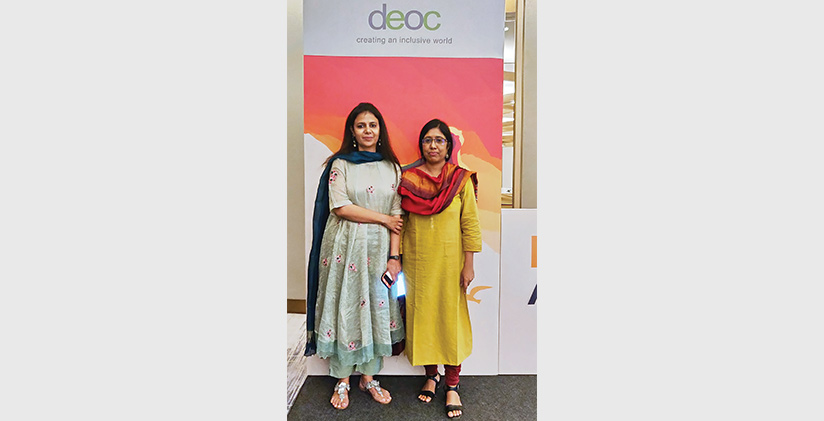 Rama Krishnamachari and Ruchira Sarin of DEOC
Rama Krishnamachari and Ruchira Sarin of DEOC
Employers should ensure that the precautionary measures they take in the workplace are ideal for employees with disabilities too. In this article, Rama Krishnamachari and Ruchira Sarin of DEOC, a consultancy organisation working in the field of policy, accessibility and training, talk about how employers can support a disability-inclusive response at work.
India is getting aligned to the new normal as it unlocks after several versions of the lockdown. Businesses and establishments that are reopening are taking special precautionary measures for employees and visitors. These include installing signage for social distancing, sanitiser dispensers and no-contact devices or hardware.
While working closely with people having disabilities, we keep getting feedback on some of the precautionary measures undertaken by organisations and the challenges they pose to disabled employees. Mahesh, a 33-year-old wheelchair user who works in an IT company in a plush office complex in Bengaluru, found himself caught unaware when he had to visit his office in early July to get technical support for his laptop. Awaiting him at his office entry was a foot-operated sanitiser dispenser and a foot door opener (meant to open the door without using one’s hands). Mahesh being a wheelchair user found both the features inaccessible. While the office considered the needs of hygiene and avoiding touching surfaces, 15% users who had disability or difficulty were left behind as such products did not comply with Universal Design principles.

Raji, 42, is a person with a visual disability, residing in NCR. She had her apprehensions approaching her workplace in the current unprecedented times. She was wondering if she would get help and also will she be putting herself at risk by taking a person’s help. But to her surprise, as she approached her office last week, she was welcomed by a well-trained person who explained the changes that have been made: a well-laid system of tactile markings right from the entrance to the elevator and further to the entry of the office, accessible lift controls driven by her smartphone, signage with QR code, etc. She found it so much easier to navigate around her workspace. The workspace had several other Universal Design features in place like automatic doors, sanitiser dispensers, etc. The staff had also been trained to support her if it is required.
While Mahesh is battling with his organisation, trying to convince them into providing an accessible and safe workspace, proactive companies like Raji’s have been able to meet the requirements of not only her but of almost their entire workforce.
THE TAKEAWAYS ARE:
Rama Krishnamachari is an expert in the area of disability policies and inclusion. Ruchira Sarin is an architect specialising in Universal Design. They are together leading DEOC, a consultancy organisation with over two decades of experience in policy, accessibility and training. DEOC has been engaged with Brookfield Properties in making their campuses accessible through access audits and implementation consultancy. To learn more about DEOC, please visit www.deoc.in